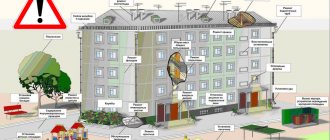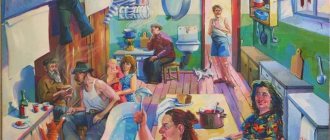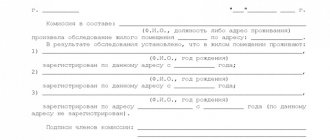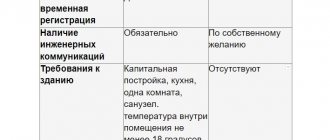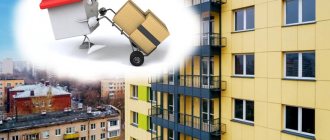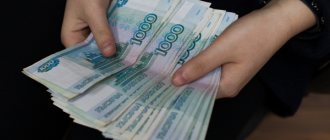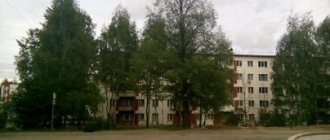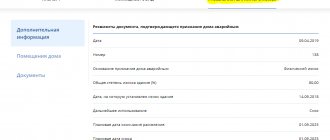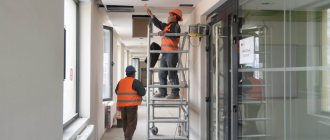Everyone in their life has faced the problem of misunderstanding between neighbors. They arise from a lack of respect and understanding of other people. You should take into account the needs and desires not only of your own, but also of those around you.
In most multi-storey buildings, there are unspoken rules for reasonable behavior in your apartment and in the entire house. After all, comfortable and pleasant living conditions depend on each resident. The rules of public order in an apartment building apply not only to its residents, but also to guests, whose behavior greatly affects everyone.
These standards include not only personal behavior, but also participation in repairs, timely payment of utilities, behavior in case of fire, wise use of utility rooms and much more, which will be discussed further.
General rules of behavior in the apartment
Respect for others includes respect for their interests. This means allowing them to rest when allowed, especially on holidays or weekends. A citizen has the opportunity to use his apartment at his own request, but this should not cause indignation of other residents, violating their peace and quiet. The unspoken rules also include not throwing cigarette butts and other rubbish in stairwells.
Also, everyone is responsible for their pets and cleaning up after them. Many houses have also approved punishment in the form of fines for violating the rights of other citizens. What will help you adhere to the relevant rules? Understanding that living in a high-rise building is a shared existence and requires the participation of everyone without exception.
Therefore, the Housing Code of the Russian Federation 2021 contains rules for living in an apartment, which, unlike those mentioned earlier, are of a legislative and not a contractual nature.
Mandatory for everyone are fire, sanitary and environmental safety rules. Let's figure out what this means.
Fire safety depends on many things. Namely, it is prohibited to store explosive substances in an apartment or non-residential premises. Littering stairwells, interfloor openings with unnecessary things, as well as your own balconies and loggias can interfere with saving lives in the event of a fire. Therefore, the Civil Code in Russia prohibits leaving trash of any kind in public places and requires keeping them clean and safe. Of course, no one has the right to prohibit the use of personal premises in their own interests, but improper use of common property entails punishment.
Sanitary and environmental safety obliges you to monitor your pets so that they do not pollute public areas in any way. It will be a violation of the rules of conduct in apartment buildings if residents change the design, purpose and position of utility rooms. They also prohibit the keeping of various animals, which affects sanitary standards of residence. Using these premises to promote your business is also considered non-compliance with regulations and laws.
Rules for living in apartment buildings managed by the ARENA HOA
HOUSING OWNERS ASSOCIATION "Arena"
RULES OF RESIDENCE IN AN APARTMENT BUILDING
at the address: Moscow, st. Khamovnichesky Val, 36
We, the owners of an apartment building, in order to agree on the procedure for exercising our rights to own, use, dispose of residential and non-residential premises, use of common property, to carry out maintenance activities, ensure the sanitary and technical condition of common property and receive utility and operational services, as well as distribution among owners of responsibilities for reimbursement of relevant costs, in order to regulate relations between owners (tenants), management and operating organizations, other persons in any way connected with the implementation by owners of their rights, in accordance with the Housing Code, the legislation of the Russian Federation, the city of Moscow and As a member of the Arena HOA we accept these Rules of Residence
1. Access control, security
1.1. In order to ensure proper protection of the common property of an apartment building (hereinafter referred to as the house), an access control system has been established on the territory of the building.
1.2. Compliance with access control and the provision of security services is carried out by a licensed security company on the basis of an agreement concluded with the Arena HOA (hereinafter HOA) in accordance with the current legislation of the Russian Federation - hereinafter security.
1.3. To enter the territory of the house of Apartment Owners, as well as permanently residing members of their family, relatives and other citizens, the Owner must issue (receive) permanent passes of the established form (keys) from the HOA Board.
1.4. For persons who are not the Owners of the premises and do not live in the house, the following access regime is determined for the territory of the residential complex:
- admission to the territory of the house and to premises belonging to the owners of persons carrying out work for a period of up to one month is carried out according to the lists provided by the owners to the security of the HOA.
-pass to the territory of the house and to the premises belonging to the owners of persons performing work for a period of more than one month is carried out using passes of the established form for each person individually. The pass is issued by the HOA Board in accordance with the lists submitted by the owners. The responsibility to provide employees with issued passes lies with the Owners.
-passage of visitors (guests) is carried out upon prior notification of the owner to the security post.
— passage of vehicles of visitors (guests) is carried out upon prior notification of the Owner to the security post. Parking of vehicles of visitors (guests) is regulated by clause 3.9; 3.10; 3.11; 3.12.
2. Carrying out repairs and/or reconstruction
2.1. Before carrying out repair work and/or reconstruction, the Owner is required to submit an application to the HOA manager indicating the list of planned activities (work), the mode and duration of the work.
2.2. To carry out work on the reconstruction of premises, the Owner is required to obtain a permit in accordance with the Housing Code of the Russian Federation and the Moscow Law of September 1999. NQ37 “On the procedure for renovating premises in residential buildings in the city of Moscow.”
2.3. The HOA is obliged to familiarize the owners or tenants of adjacent premises with the planned activities and, taking into account their wishes, draw up reports on the technical condition of adjacent premises.
2.4. The owner of the premises of the house is obliged to agree on the work schedule with the owners whose legal rights and interests may be directly affected during the work or as a result of it.
2.5. When developing and agreeing on proposals for the duration and mode of work, applicants and managers of residential buildings are required to take into account the restrictions established by this article.
2.6. In an apartment building during the period of repair work and/or reconstruction of premises, it is prohibited:
- use equipment and tools when carrying out work that cause the normatively permissible level of noise and vibration provided for by GOST 12.1.036-81 to be exceeded;
-carry out work without special measures to prevent damage to adjacent premises;
- clutter and pollute evacuation routes and other public places with construction materials and/or waste;
-use passenger elevators to transport construction materials and waste without packaging.
-from the moment the first residents move in, it is additionally prohibited:
-carry out repairs and renovations on weekdays that create noise during the day from 2 p.m. until 16.00
-perform work on Sundays and public holidays;
-start work involving noise earlier than 10:00 a.m. and/or finish it later than 6:00 p.m.;
2.7. Repairs and reconstruction carried out by the owners of the premises require approval from OAO Luzhniki, the operating organization Dom-Service LLC and the Chairman of the Board of the Homeowners Association.
2.8. Facts of violations of the requirements of this article are reflected by interested parties in free-form acts, which are sent to the HOA Board, the State Housing Inspectorate of the City of Moscow, internal affairs bodies, prosecutorial supervision, sanitary and epidemiological supervision, and fire supervision.
2.9. If it is necessary to extend the period for carrying out work on the reconstruction of premises, the issue is resolved in the manner established by the Moscow Government by the executive authority that issued the permit.
2.10. The owner is obliged to provide access to the premises to the Chairman of the Board and/or employees of the HOA, officials of the State Housing Inspectorate of the city of Moscow, executive authorities and local governments to verify complaints about violation of the work schedule and causing damage to other persons.
2.11. The owner and/or the contractors involved by them, when starting repair work and/or reconstruction of the premises, are obliged to inform the Chairman of the Board of the Homeowners Association or the authorized body about this, who must register the start and end dates of the work in a journal in the established form (the latter is determined in accordance with the permitted duration of work). At the same time, providing an agreement with the organization carrying out the work and a permit (license) for carrying out work that requires a specially issued permit (license).
2.12. The owner agrees on the procedure and conditions for the removal of construction waste with the Chairman of the HOA Board, as well as compensation for damage to common property in the event of damage
2.13. Carrying out work that worsens the operating and living conditions of all or individual citizens of a house or apartment is not permitted.
2.14. Reconstruction, re-equipment and redevelopment of apartments (rooms), non-residential premises, including changes in the area of loggias and balconies, changes in the external architectural appearance of the house, leading to a violation of the strength or destruction of the load-bearing structures of the building, disruption of the operation of engineering systems and/or equipment installed on it , deterioration of the safety and appearance of facades, windows and glass tinting, violation of fire safety devices is prohibited.
3. Use of common property in an apartment building
3.1 The owners of premises in an apartment building own, by right of common shared ownership, premises in this building that are not parts of apartments/non-residential premises and are intended to serve more than one premises in this building, including inter-apartment landings, stairs, elevators, elevators and others shafts, corridors, technical undergrounds, attics, basements in which there are engineering communications, other equipment serving more than one room in a given house (ventilation chambers, electrical switchboards, ASU, ITP, pumping equipment and other communications), as well as roofs enclosing load-bearing and non-load-bearing structures of this house, mechanical, electrical, sanitary and other equipment located in this house outside or inside the premises and serving more than one room, the land plot on which this house is located, with elements of landscaping and landscaping and other intended for maintenance , operation and improvement of this house, objects located on the specified land plot.
3.2. The owner of premises in the house does not have the right:
- to allocate in kind your share in the right of common ownership of common property in the house.
- alienate one’s share in the right of common ownership of common property in an apartment building, as well as perform other actions entailing the transfer of this share separately from the right of ownership of the specified premises.
3.3. Owners are obliged to take care of landscaping facilities and green spaces, follow the rules for maintaining the local area, and prevent its pollution.
3.4. It is prohibited in the local area to wash cars and other vehicles, drain gasoline and oils, and adjust signals, brakes and engines.
3.5. Owners are obliged to comply with sanitary and hygienic rules: keep common property clean; maintain cleanliness and order in entrances, elevator cabins, staircases and other common areas; clean clothes, carpets, etc. In places determined by the HOA Board.
3.6. It is prohibited to store substances and objects that pollute the air in common areas, as well as to obstruct corridors, passages, staircases, emergency exits and other common areas.
3.7. It is prohibited to clog plumbing equipment, garbage chutes and sewer systems with objects, materials or substances that do not comply with this type of disposal. Repair work to eliminate any damage caused by improper use of any plumbing and engineering equipment is carried out at the expense of the owner of the premises through whose fault this damage occurred.
3.8. Smoking is not allowed in common areas, on the playground, in the entrances, hallways and stairwells of the house.
3.9. Parking _____ is intended for use by residents of the building and is subject to availability on a first-come, first-served basis. Parking _____ is intended for use by owners of non-residential premises and is provided on a first-come, first-served basis subject to availability. Parking in the parking lots of ____ and _____ vehicles in the period from 21-00 to 8-00 is prohibited. Sequence control and registration of available seats is carried out by security.
3.1 The duration of stay of service vehicles with a driver for boarding and disembarking passengers in the parking lots located between the checkpoint and the children's playground with a recreation area is allowed for no more than 10 minutes with the engine turned off.
3.11. Parking of homeowners' vehicles and company cars with a driver on the stylobate part is prohibited. The stylobate part is used by ambulances when transporting a patient home/to a medical facility; immediate response services of the police, military personnel; to carry out activities related to fire fighting/evacuation of residents of the house by the Ministry of Emergency Situations; for snow removal.
3.12. The stylobate part can be used by homeowners for loading/unloading large-sized items, interior items, furniture, household appliances, etc. The time spent by a vehicle with the engine turned off on the stylobate part is limited to 30 minutes.
3.13. It is not allowed to be in common areas in corridors, elevators, entrances, halls, lobbies and stairwells wearing dirty, soiled clothes.
3.14. Attaching various banners, pendants, signs, signs (flagpoles and other devices) to the walls of the house, installing air conditioners and satellite dishes, as well as using the facade of the building in any other way is not allowed.
3.15. The owner is obliged to provide free access to the Chairman of the Board and/or employees of the HOA to mechanical, electrical, sanitary and other equipment located inside the premises related to the common property in the apartment building.
4. Rules of conduct on playgrounds.
4.1. Children's playgrounds are intended for children's leisure time.
4.2. The following is prohibited on the playground:
— Drink alcohol and alcohol-containing drinks;
- Smoking;
— Littering the territory of the playground;
— Walking pets;
— Use playground equipment for purposes other than intended, if possible
threaten the life and health of children or cause damage to equipment;
— Other actions not related to children’s leisure are prohibited.
5. Underground parking
5.1. The underground parking lot is intended exclusively for parking the owners' passenger vehicles.
5.2. The parking area is marked and numbered.
5.3. It is prohibited to use the parking space for any purpose other than parking a vehicle.
5.4. Unauthorized erection, construction, installation of any fences, racks, cabinets, structures, placement of equipment, etc. is prohibited in the parking lot.
5.5. It is prohibited to wash, repair, refuel vehicles with fuels and lubricants, store and drain waste oils from vehicles, car tires, wheels, etc. in the parking lot.
5.6. Storage of flammable, fire-hazardous, explosive, caustic and toxic substances is prohibited in the parking lot.
5.7. Smoking is prohibited in the parking lot.
5.8. Owners and tenants of parking spaces and car owners using an underground parking lot are required to comply with the access control rules and the rules of entry and exit to the underground parking lot.
5.9. Owners of parking spaces can rent out parking spaces that belong to them by right of ownership, having previously notified the HOA Board, providing information about the tenant and vehicle license plates. The owner is obliged to provide the tenant with a pass to enter the parking area. The owner of the parking space is responsible for the actions of the tenant in the parking area.
5.1O. Owners of parking spaces and car owners using an underground parking lot bear the burden of expenses for the maintenance and operation of the underground parking lot, make payments in accordance with the estimate and within the terms adopted by the General Meeting.
5.11. Security and the HOA Board are not responsible for items and belongings left in the underground parking lot.
6. Holding noisy events
6.1. Noisy events and activities that disturb the peace and quiet of the owners at night are prohibited.
6.2. Night time is the period from 11 p.m. to 7 a.m.
6.3. Actions that disturb the peace of citizens and silence at night on the territory of the house include:
- use of televisions, radios, tape recorders, sound reproducing devices, as well as sound amplification devices.
- playing musical instruments, shouting, whistling, singing, as well as other actions accompanied by sounds, resulting in disruption of citizens’ peace and quiet at night;
— the use of sound signals from car security alarms, resulting in disruption of citizens’ peace and quiet at night;
- the use of pyrotechnics at any time on the territory of the house, resulting in disruption of the peace of citizens
- carrying out repair, construction, unloading and loading works, resulting in disruption of citizens’ peace and quiet at night;
- other actions that entailed disruption of citizens’ peace and quiet at night.
7. Payment for premises and utilities
7.1. Owners of premises are required to participate in the costs of maintaining common property in the house, as well as pay utility bills on time.
The amounts of utility, monthly and one-time targeted payments are approved by the general meeting of the HOA.
7.2. Mandatory monthly utility, target and fixed payments are made before the tenth day of the month following the expired month.
7.3. Payments are made to the HOA's settlement account on the basis of payment documents submitted no later than the fifteenth day of the month following the previous month.
7.4. Decisions of the general meeting on the amount, procedure and timing of making utility payments, one-time targeted and monthly contributions are mandatory for all Owners, including those who are not members of the HOA.
7.5. Failure to use the premises by owners, tenants and other persons is not grounds for failure to make mandatory, one-time and utility payments.
In the temporary absence of citizens, payment for certain types of utility services, calculated on the basis of consumption standards, is carried out taking into account the recalculation of payments for the period of temporary absence of citizens in the manner approved by the Government of the Russian Federation and the laws of the city of Moscow
7.6. The HOA board has the right to prohibit the issuance of any requested documents to the owner of the premises who has arrears in paying utility bills and other payments until this debt is fully repaid.
7.7. The HOA board has the right to demand that the owners of the premises pay the resulting debt to the HOA, including in pre-trial and judicial proceedings.
7.8. Complaints regarding the management of the Partnership or the actions of the owners of other premises in the HOA are submitted only in writing to the Chairman or the Board of the HOA.
8. Keeping pets
8.1. Keeping pets in separate apartments is permitted subject to compliance with sanitary, hygienic, veterinary and sanitary rules and rules for keeping dogs and cats in cities and towns.
8.2. Pet owners must take necessary precautions to ensure the safety of people and animals around them.
8.3. It is not permitted to keep pets in common areas such as landings, attics, basements, corridors, etc., as well as on balconies and loggias.
8.4. Pet owners are required to immediately remove contamination and waste products from pets on stairwells, elevators, and other common areas in a residential building, as well as in the courtyard of the house, on sidewalks and lawns.
8.5. Pet owners are required to take measures to ensure silence in residential areas and in the yard of the house.
8.6. When walking dogs, owners must comply with the following requirements:
— Take dogs out of residential premises, as well as isolated areas, onto the street and into common yards only on a short leash and wearing a muzzle (except for puppies under 3 months of age).
— Dogs should be walked outside the house, in specially equipped areas.
8.7. It is prohibited to walk dogs near the house, on playgrounds, sports fields and other public places.
8.8. Walking dogs is generally allowed from 7:00 a.m. to 11:00 p.m. When walking dogs at other times in case of emergency, their owners should take measures to ensure silence.
8.9. Owners of dogs that cause harm to the health of citizens, material and moral damage to citizens, are brought to criminal, civil and administrative liability in accordance with the procedure established by current legislation.
9. Disposal by owners of owned premises.
9.1 When selling, donating, leasing or disposing of your real estate in any other way, as well as when transferring ownership, the owner is obliged to notify the Chairman of the HOA Board about this, providing copies of the agreement and title documents. In case of inheritance, the new owner provides copies of title documents.
9.2. When performing the above actions, the owner is obliged to pay off existing debts.
9.3. The chairman of the board of the HOA is obliged to familiarize the new owner with the Rules for living in the house.
10. Employees of the Arena HOA
10.1 Direct provision of favorable and safe living conditions for the owners, proper maintenance of the common property in the house, ensuring the execution of decisions of the General Meeting and the Management Board of the Partnership, as well as creating conditions for fulfilling the obligations of the operating company, is carried out by the employees of the Partnership hired.
10.2 Management of the current, everyday activities of the employees of the Partnership, as well as ensuring the execution of decisions of the General Meeting and the Management Board of the Partnership is carried out by the Chairman of the Partnership (hereinafter referred to as the Manager).
Manager - an individual hired and/or appointed to a position by the Board of the Partnership. The Manager is responsible and responsible for all issues related to the activities of the Partnership’s employees and ensuring the execution of decisions of the General Meeting and the Management Board of the Partnership.
HOA employees may be:
Manager, chief engineer, engineer, chief accountant, lawyer, cashier, administrator, dispatcher, plumbers, electricians, cleaners, janitors and other workers hired to service an apartment building. in accordance with the approved staffing schedule. Employees of the Partnership and the Manager perform their labor duties in accordance with Employment Agreements and Job Descriptions.
10.4. Decisions on hiring and dismissal of employees of the Partnership and the Manager are made by the Board of the Partnership, in accordance with the Charter, the Labor Code and the current legislation of the Russian Federation.
11. Final provisions
11.1. Monitoring compliance with the Rules of Residence is carried out by the HOA Manager, HOA employees within the framework provided for by job descriptions, as well as employees of the security organization servicing the HOA.
11.2. In case of violation of the Rules of Residence, as well as other current legislative acts regulating housing relations, the violators are given verbal warnings. In case of failure to comply with an oral warning and/or repeated violation of the Rules of Residence, as well as other current legislative acts regulating housing relations, the violators are sent written notices and/or orders with a requirement and an indication of the time frame for eliminating the violations. Persons who have repeatedly violated the Rules of Residence may be subject to appropriate sanctions within the framework of the current legislation of the Russian Federation, the Charter of the Arena HOA and decisions of the Board of the Arena HOA.
11.3. For all issues that have not found their solution in the text of these Rules, but directly or indirectly arising from relations regulated by the Rules, one should be guided by the Civil, Housing Code, other current regulations of the Russian Federation, Laws and regulations of the city of Moscow, as well as the Charter HOA "Arena"
11.4. The right to replace, supplement, revise, suspend or cancel these Rules belongs to the general meeting of the partnership.
11.5. The rules of residence are mandatory for all owners, regardless of whether they are members of the HOA or not, persons living with them, tenants and other persons located on the territory of the house.
11.6. The rules of residence come into force from the date of their approval by the general meeting
Acquainted /_________________________________/
Common property
What are public places and what are the rules of behavior in them? Elevators, shafts, attics, basements, stairs and platforms between floors, corridors, storage rooms, sheds and plots of land related to the house, platforms, parking lots - these are the premises that all residents of the house have the right to use. They do not belong to anyone in particular. Therefore, it is prohibited to use them as storage facilities or your own workshops. As already mentioned, change their design or size, clutter them with unnecessary things and use explosive substances for cleaning or storing them. The installation of additional walls, bars and doors is also considered a violation of engineering construction and can serve as a big hindrance in case of danger.
Damage to property is considered to be contamination by drawings, smoking, or advertisements (in places not intended for this purpose). Dormitory standards in apartment buildings prohibit the parking of cars or their repair and cleaning on playgrounds, pedestrian crossings, and park areas. If there is a need for additional services, including the installation of antennas, air conditioners, the construction of a garage or shed, or fencing, you will need permission from local authorities and the consent of all residents of the house. As for cutting down trees, bushes and other growing plants on a plot of land belonging to a house, this is also punishable for unauthorized actions.
Legislative regulation
The rules of living in modern apartment buildings are regulated by federal and regional legislation. They are stated in the following documents:
- Constitution of the Russian Federation (Article 40).
- Civil Code (Article 290).
- Housing Code.
- PP indicating “Rules for the use of residential premises” No. 491.
- Code of Administrative Offences.
The issues of living in apartment buildings are reflected more deeply in regulations created at the municipal level. For example, HOAs and other management companies regulate the following areas:
- Sanitary and fire safety standards.
- The procedure for paying utility bills for the use of common property.
- Time to carry out major repairs and other repair work. Carrying out redevelopment of apartments.
- Rules for using parking spaces near the house.
- Keeping and walking animals.
- Maintaining cleanliness of the area and common areas.
- Actions in emergency situations.
- Responsibility for violating the rules of residence.
Such norms, which are internal and developed by municipal authorities, have legal force at the same level as state ones. They are compiled individually for each home.
Moreover, each resident has the right to propose his own changes and adjustments . The management company is obliged to notify other residents about this. Most often, a general meeting is organized at which voting is held and a decision is made to approve or reject proposals.
If the requirements have been satisfied, they are documented and signed. After this, the changes become an internal document of the house and are mandatory for all residents.
Internal rules of residence cannot contradict the current legislation of the Russian Federation and are drawn up on its basis.
Engineering changes and noisy work
Sometimes, one of the residents wants to make changes to the design of their apartment. What should you remember and what should you avoid in this case?
In addition to an agreement with the city government on remodeling and moving walls and plumbing equipment, it is important to pay attention to the needs of your neighbors. In particular, noise regulations, which have time restrictions. More specifically, from 10 pm to 10 pm and from 1 pm to 3 pm - especially if there are people in the neighborhood who need extra rest.
Important! The specified time restrictions on noisy activities are not the same for everyone and depend on the region and a number of other parameters. For example, in a newly completed new building, it is legally permitted to make noise for a longer period of time. Read more in the article
Work to expand your premises should not affect the quality of life of others; it is prohibited to: damage their walls, ceilings, allow water or gas to leak, swap functional rooms, and not clean up the results of construction. Damage to common property is a violation of the rights of residents of an apartment building. The country's law also establishes permissible noise levels and this does not depend on hourly restrictions.
Rules for living in an apartment and the rights of neighbors
By the way, noise restrictions apply not only to repair work, but also to ordinary activities - the sounds of music, television programs, entertainment for visiting guests, games for children, and more.
Neighbors have the right to complain to the management structure about a tenant who does not comply with the law on neighbors in an apartment building. Therefore, representatives of this institution can show up to check. And if a specialist discovered a violation, including damage to public property, the guilty tenant will be held accountable.
The basic norms of behavior in the apartment oblige each resident to treat other residents with respect, and this affects the overall atmosphere of the house.
If you find an error, please select a piece of text and press Ctrl+Enter.
Didn't find the answer to your question? Find out how to solve exactly your problem - fill out the form below or call right now: +7 (ext. 697) (Moscow) +7 (ext. 281) (St. Petersburg) +8 (ext. 198) (Russia) It's fast and free!
